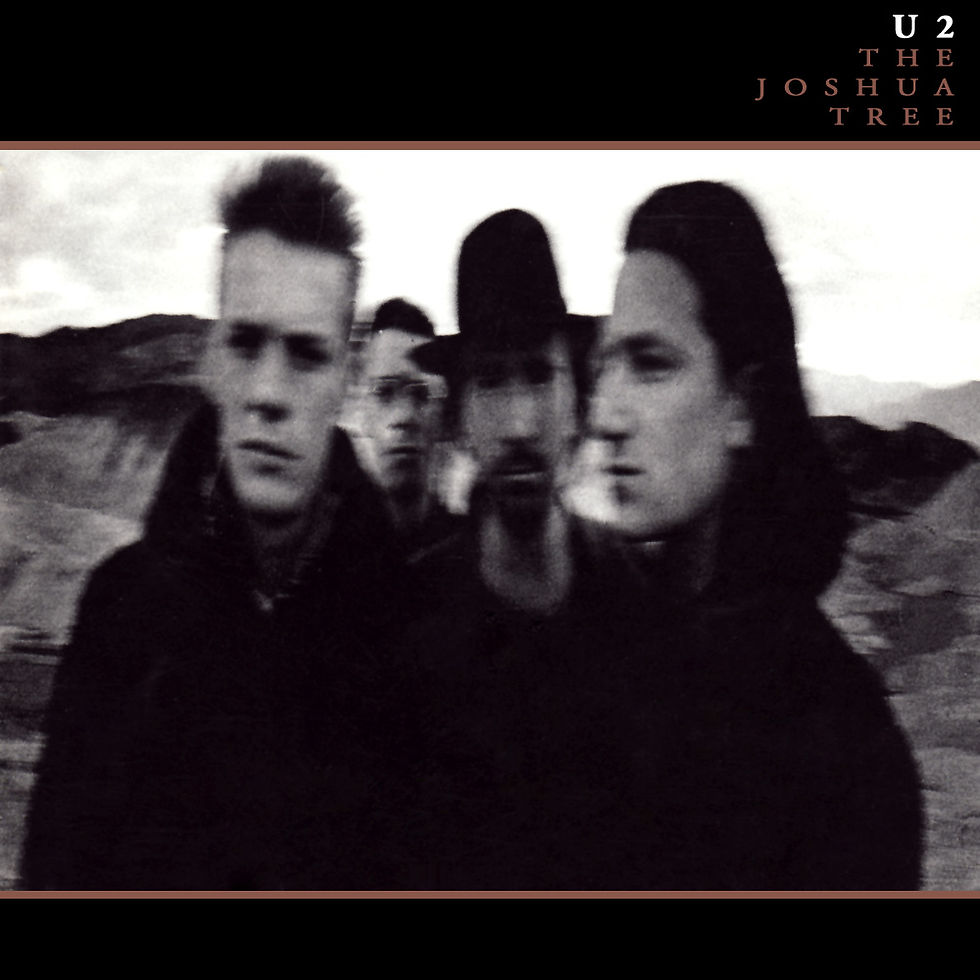U2 - Zooropa
- FaceOff - עימות חזיתי

- Jul 5, 2025
- 4 min read
On July 5, 1993 "U2" released their eighth studio album "Zooropa".

"Zooropa" stands as one of the band’s most daring and experimental works.
After the triumph of "Achtung Baby", "U2" were deep into their visually chaotic, irony-soaked "Zoo TV Tour". In between the madness of traveling and performing, the band retreated to "Windmill Lane Studios" in Dublin with a rough idea to record an EP Inspired by the band's experiences on the tour. What followed instead was a whirlwind of late-night creativity, driven by exhaustion and improvisation, that gave birth to a full album drenched in abstraction, electronica, and futuristic themes. The production was helmed by Flood, Brian Eno, and for the first time, The Edge, who added his sonic curiosity to the mix.
The album finds the band experimenting with alternative rock, electronic dance music, and electronic sound effects. It perfectly captures the disorientation of the early 1990s—a time when TV, technology, and consumerism began to blur the lines of identity, connection, and truth. This was not "U2" making arena rock. This was "U2" plugging directly into the chaos of modern life and channeling it into a work that was as challenging as it was visionary.
The opening track - "Zooropa", is an atmospheric buildup of static, synthesized pulses, and sampled advertising slogans like "Be all that you can be" and "Vorsprung durch technik". It sets the album’s tone: one of saturation, confusion, and beauty emerging from overload.
"Babyface" blends a seductive melody with an undercurrent of obsession and digital longing. It's about a man obsessed with a celebrity manipulating her image on a TV recording. Musically it’s dreamy, soft, and unsettling—reflecting the way technology warps human emotion.
"Numb" puts The Edge in the vocal spotlight. His monotone list of commands—"Don’t move, don’t talk, don’t think"—is backed by industrial beats and hypnotic guitar repetition. Bono's falsetto haunts the background, reinforcing the sensation of mental paralysis in a hyper-stimulated world. Strangely this song was picked up as the album's leading single.
"Lemon" is a standout experiment. A funky, robotic groove supports Bono’s shimmering falsetto, with lyrics referencing a film reel of his late mother wearing a lemon-colored dress—a surreal blend of memory, loss, and future-pop.
"Stay (Faraway, So Close!)" is the emotional core of the album. Originally written for Wim Wenders’ film of the same name - a sequel to Wenders' 1987 film "Wings of Desire". It is a rare moment of warmth and directness. The ballad’s soaring chorus and intimate lyrics feel like the soul reaching through a screen. No wonder Bono claimed that it is "perhaps the greatest U2 song". The song first began to take shape during the recording sessions for the band's 1991 album "Achtung Baby". Originally inspired by Frank Sinatra, it was even given his last name as its initial working title. The accompanying music video, directed by Wim Wenders, was shot in Berlin, Germany.
"Daddy’s Gonna Pay for Your Crashed Car" is theatrical and dark. It was described by Bono as "industrial blues". The track opens with a brief fanfare taken from Lenin's "Favourite Songs" and includes a sample from MC 900 Ft. Jesus' track "The City Sleeps.". Built around distorted samples and booming brass, it critiques addiction—whether to drugs, media, or fame—with unsettling flair.
"Some Days Are Better Than Others" adds playful rhythm and funk, but the lyrics remain bittersweet. It’s a strange intermission that offers charm while hinting at deeper disillusionment.
"The First Time" strips everything back. Over a simple melody, Bono uses biblical metaphors to tell a story of faith, betrayal, and forgiveness. It’s tender, almost hymnal. Bono saw the song as his own take on the story of "the Prodigal Son"—but in his version, the son chooses not to go back home.
We are nearing the end with "Dirty Day". Bono has described the song as a "father and son song," where the lyrics tell the story of a father coming back to his estranged son, only to be unrecognized by him. The title was inspired by a phrase often used by Bono’s father, who would refer to difficult days as a "dirty day."
And then comes "The Wanderer", the album's closer sung by Johnny Cash. His weathered voice drifts through a synthetic wasteland, narrating a soul’s search for meaning in a spiritually bankrupt world. Bono based the song on the Book of Ecclesiastes, modeling the narrator after "The Preacher." The song follows a character searching for meaning in a post-apocalyptic world. Bono saw it as a response to the uncertainty explored throughout "Zooropa", offering a possible sense of resolution. It’s not just an ending—it’s a reckoning.
When it was released, "Zooropa" debuted at number one in several countries and earned the 1994 Grammy Award for Best Alternative Music Album. But fans were divided. Some expected another "Achtung Baby". Instead, they got a glitchy, conceptual fever dream that defied genre and audience expectation. It remains one of the most misunderstood yet essential albums in "U2"'s catalog—bold, strange, and unforgettable.
For Listening: Spotify, Apple Music













Comments